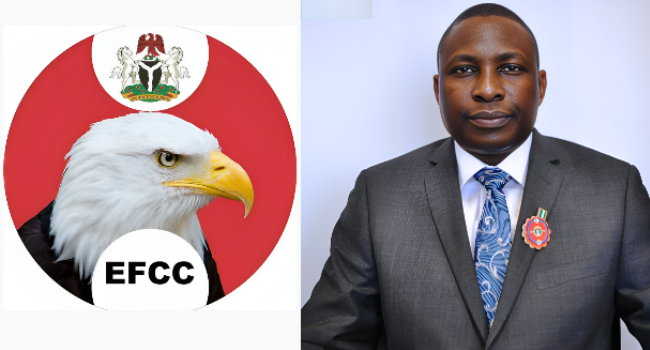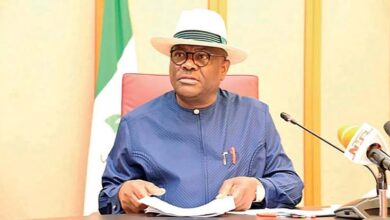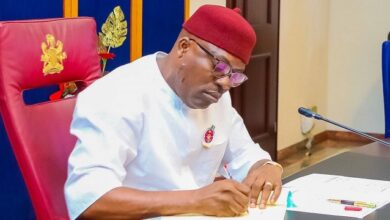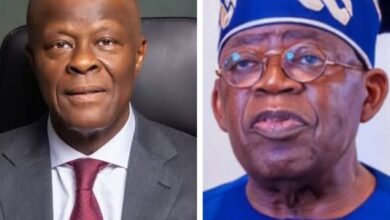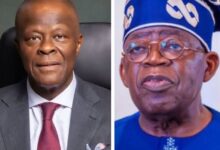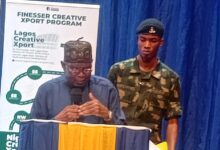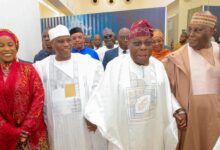THE NARRATIVE BEFORE THE INTERVENTION: How Washington is shaping Nigeria’s story
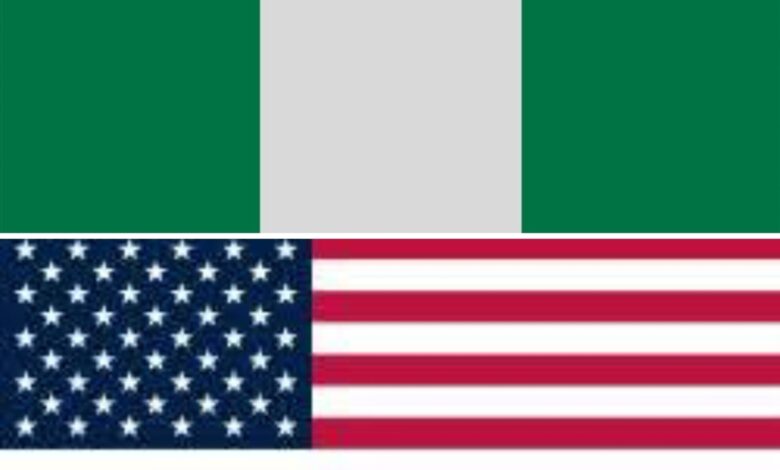
This is why the Kebbi example matters. A US lawmaker wrongly described a Muslim Muslim abduction as Christian persecution, and when that narrative collapsed, the next major headline was an attack on a Christian missionary school. Nigeria suffers daily violence, but global attention selects only the violence that fits the frame already in circulation.
Foreign intervention never begins with airplanes, sanctions or soldiers. It begins with stories. It begins with how a country is described, framed, understood and judged by powerful nations.
Iraq did not begin with missiles. It began with a narrative about weapons of mass destruction. Libya did not begin with bombs. It began with a narrative about protecting civilians. Syria did not begin with airstrikes. It began with a narrative about humanitarian responsibility.

The same pattern is now forming around Nigeria, and the speed is alarming.
The life sentence delivered to Nnamdi Kanu on November 20, 2025 is a perfect example. A Nigerian court, after years of legal proceedings, found him guilty on seven terrorism related charges, including directing violence, issuing sit at home orders, caused hundreds of deaths, and guiding bomb making. The court described him as an international terrorist and chose life imprisonment instead of the death penalty.
Within hours, a US lawmaker declared that the conviction was evidence of religious persecution.
The life sentence delivered to Nnamdi Kanu on November 20, 2025 is a perfect example. A Nigerian court, after years of legal proceedings, found him guilty on seven terrorism related charges, including directing violence, issuing sit at home orders, caused hundreds of deaths, and guiding bomb making. The court described him as an international terrorist and chose life imprisonment instead of the death penalty. Within hours, a US lawmaker declared that the conviction was evidence of religious persecution.
A terrorism judgment became a faith narrative in a single step. This did not happen randomly, it is structural and it is how congressional narratives are built.
A legal event happens. American lawmakers interpret it through a moral lens that suits domestic politics. The narrative becomes a talking point. Talking points become resolutions. Resolutions become sanctions or conditions. And at the end of that chain lies the justification for foreign intervention.
This is the architecture we are watching being built around Nigeria.
What makes the situation even more concerning is that this narrative did not start yesterday. It has been shaped for years, intentionally and deliberately, through structured lobbying.
Foreign Agents Registration Act filings in Washington show that IPOB and its affiliates hired American lobbying firms to promote a narrative of Christian persecution in Nigeria. The message was clear: Nigeria is killing Christians, the Nigerian state is complicit, and the South East faces genocide. These claims were crafted to appeal to the American evangelical and conservative network that sees global Christian victimhood as a core political issue.
This lobbying created a permanent narrative frame. Even after contracts ended, the impression remained inside congressional offices, in briefing notes, in staff memory and in committee debates. Lobbying does not disappear when the cheque stops. It leaves a shadow.
Foreign Agents Registration Act filings in Washington show that IPOB and its affiliates hired American lobbying firms to promote a narrative of Christian persecution in Nigeria. The message was clear: Nigeria is killing Christians, the Nigerian state is complicit, and the South East faces genocide. These claims were crafted to appeal to the American evangelical and conservative network that sees global Christian victimhood as a core political issue.
This is why the same Congress that invokes Christian persecution rarely mentions certain facts.
It ignores that Boko Haram has killed more Muslims than Christians. It ignores that banditry in the North West is driven by economic motives, not religion. It ignores that many Christian communities in the Middle Belt are attacked, but Muslim communities across the North and Middle Belt also suffer the same fate in even larger numbers. It ignores that IPOB and ESN splinter groups killed over 700 Christians in the South East and enforced violent sit at home campaigns. It ignores that Finland, a Western nation, convicted a key Biafran agitator for terrorism in September 2025. It ignores that the Nigerian court conviction of Kanu was based on evidence, not on faith.
And it ignores the deaths of Muslims who are also victims of the same terror networks. Only days before some US lawmakers repeated the Christian genocide narrative, terrorists abducted and murdered the Ameer of the Muslim Students Society of Nigeria in Kebbi State, Alqasim Uthman Ibrahim. He was kidnapped and killed in captivity, without media attention, international outrage or congressional concern.
His death did not appear on CNN or BBC. It did not trend in Washington. It did not fit the preferred storyline. The selective visibility of victims shapes global perception, and when only Christian suffering is amplified while Muslim suffering is erased, a partial picture becomes a moral argument for intervention. A narrative built on half truths is the most dangerous foundation for foreign involvement.
It ignores that Finland, a Western nation, convicted a key Biafran agitator for terrorism in September 2025. It ignores that the Nigerian court conviction of Kanu was based on evidence, not on faith. And it ignores the deaths of Muslims who are also victims of the same terror networks. Only days before some US lawmakers repeated the Christian genocide narrative, terrorists abducted and murdered the Ameer of the Muslim Students Society of Nigeria in Kebbi State, Alqasim Uthman Ibrahim. He was kidnapped and killed in captivity, without media attention, international outrage or congressional concern.
None of these omissions are accidental. They reveal that Congress is not responding to facts. It is responding to a narrative that already existed.
To understand why this narrative is gaining new energy now, we must look at four forces shaping American behavior.
First, American election year politics. The Christian persecution narrative energises the evangelical voting bloc, which is central to Republican electoral strength.
Second, the rise of Christian activist networks that frame global events through the lens of religious victimhood.
Third, the power vacuum in the Sahel after the departure of Western forces from Niger, Mali and Burkina Faso. Nigeria is the last major state in the region where Washington can re establish influence.
Fourth, the long standing American worry about a strong, nationally confident Nigeria.
This is where the Kissinger report, NSSM 200, provides useful context. The report does not call for destabilising Nigeria. But it does clearly identify Nigeria as a key country whose population, youth demographics and mineral wealth could reduce Western access and increase African leverage. It recommends that the US should shape Nigeria’s internal environment through aid, data and multilateral pressure, and that such shaping must never appear imperial.
This is not conspiracy. It is strategic continuity and it shows how the United States engages nations that are resource rich, population heavy and potentially influential.
Today, the shaping is done through narratives, not tanks. Through concern, not confrontation. Through congressional language, not military planning.
Some critics worry that linking insecurity spikes to US statements creates a conspiratorial image. But the argument does not require coordination. It simply recognises a well documented truth about modern asymmetric warfare. Terror groups respond to global media cycles. They shift targets to maximise visibility. ISIS did it. Al Shabaab did it. Boko Haram does it. It is not instruction, it is incentive. When the world is watching a particular type of attack, extremists lean toward that pattern because it guarantees maximum attention.
This does not mean Washington controls insecurity. It means narratives shape visibility, and visibility shapes behaviour.
This is why the Kebbi example matters. A US lawmaker wrongly described a Muslim Muslim abduction as Christian persecution, and when that narrative collapsed, the next major headline was an attack on a Christian missionary school. Nigeria suffers daily violence, but global attention selects only the violence that fits the frame already in circulation.
The real danger is that Nigeria is not controlling its own narrative. And in a world where narratives drive foreign policy, this is a national security weakness.
This is how the script works. A Nigerian court convicts a separatist leader for terrorism and incitement. Congress reinterprets it as religious persecution. The narrative shifts from separatism to genocide. That narrative fuels pressure for CPC designation and possible sanctions. This becomes the moral pretext for deeper American involvement.
This is about narrative capture and has little to do with Kanu’s welfare.
At this point, even a Western leaning analyst cannot deny certain facts:
– Lobbying shaped the frame.
– U.S. domestic politics is amplifying the frame.
– The Sahel geopolitics makes Nigeria strategically important.
– Congress is using moral narratives as leverage.
– Nigeria’s internal weakness makes external framing easy.
– The Kissinger logic still influences American strategy.
– Narrative control is now a national security priority.
Nigeria must recognise what this moment truly represents. We are not dealing with random accusations. We are dealing with the early stages of a foreign policy posture that can lead to sanctions, intervention pressure or diplomatic isolation.
The only question is simple. Will Nigeria define its own story, or will others define it for us? If Nigeria does not speak, someone else will speak for Nigeria. And when others speak for us, they never speak in our interest.
Credit: Think Naija: The Reform Notebook (November 21, 2025) as reposted by Mallam Nasir El-Rufai and Dr. Uche Diala (Nigeria)


